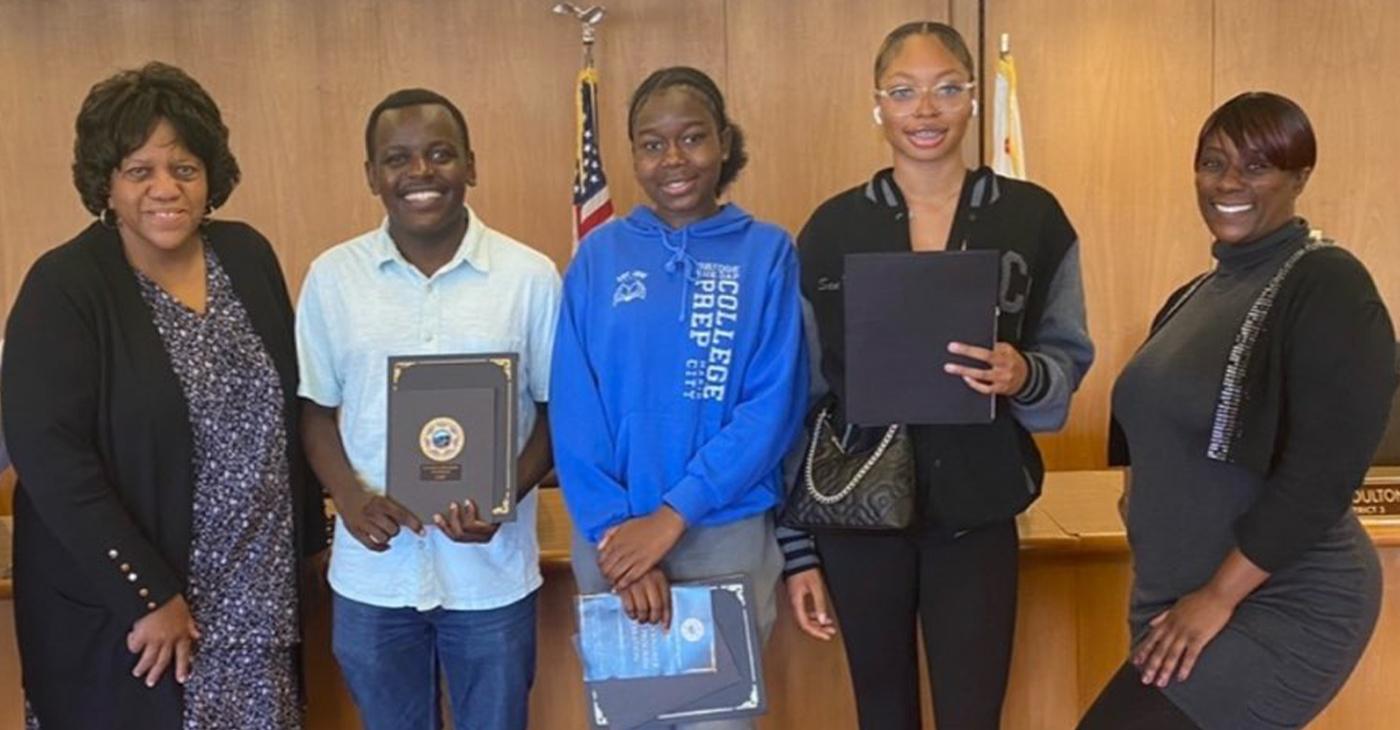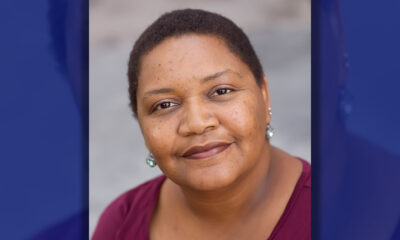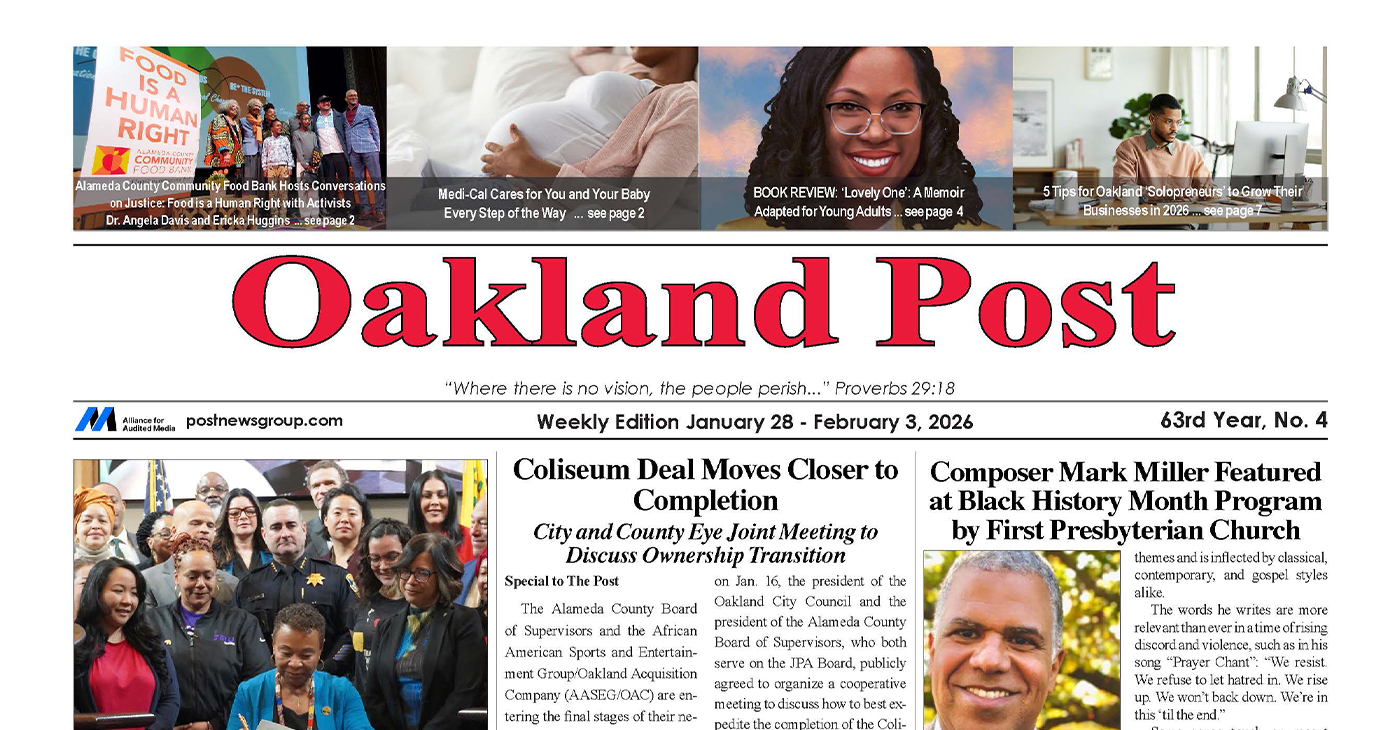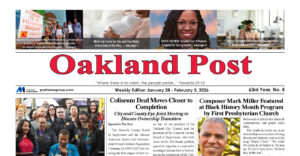Advertorial
For many pregnant people, pregnancy brings a mix of both joy and uncertainty. Alongside excitement, there are questions about finding the right doctor, understanding what care is covered, and knowing where to turn for support after the baby arrives. For Black families in Alameda and San Francisco counties those questions are often compounded by long-standing disparities in maternal health outcomes.
Across California, including Alameda and San Francisco counties, Medi-Cal is working to address those concerns by expanding and coordinating maternal health services so pregnant and postpartum people receive care that is respectful, comprehensive, and easier to navigate. From the first prenatal visit through a child’s first birthday, Medi-Cal provides coverage and support designed to protect both parent and baby.
These services are available to people who qualify for Medi-Cal. In California, eligibility is based primarily on income, household size, age, pregnancy status, disability, or other qualifying circumstances. Pregnant people qualify at higher income levels than non-pregnant adults and remain eligible through pregnancy and for 12 months after the pregnancy ends.
Importantly, pregnant people who qualify for Medi-Cal are eligible for full-scope coverage regardless of immigration status, including medical, behavioral health, dental, and vision services during pregnancy and the postpartum year.
A Clearer Path Through Pregnancy: The Birthing Care Pathway
The Birthing Care Pathway helps pregnant people understand what care they should receive and when, while supporting providers in delivering coordinated, culturally responsive services. It outlines key steps during pregnancy, including prenatal screenings, behavioral health check-ins, nutrition support, and preparation for labor and delivery.
For Black pregnant and postpartum people in Alameda and San Francisco counties the pathway emphasizes early prenatal care, shared decision-making, and connections to community-based programs that address medical needs and social drivers of health.
Doula Services: Support Before, During, and After Birth
Medi-Cal covers doula services for pregnant and postpartum members who qualify. Doulas provide non-medical emotional support, education, and advocacy during pregnancy, labor and delivery, and postpartum recovery. Research shows doula care is associated with reduced stress, improved birth outcomes, and increased breastfeeding success.
Covered doula services include prenatal visits, support during labor and delivery, and postpartum follow-up visits, in accordance with Medi-Cal benefit guidelines.
Care That Continues After Birth: The Postpartum Pathway
More than half of pregnancy-related deaths in California occur after childbirth, with Black families facing the greatest risks. The Postpartum Pathway defines the care pregnant and postpartum people who qualify for Medi-Cal should receive during the first year after birth.
The Pathway promotes a comprehensive postpartum visit within 12 weeks, ongoing primary care through 12 months postpartum, screening and treatment for postpartum depression and anxiety, breastfeeding support, chronic condition management, and referrals to community-based services.
Mental Health, Dental, and Vision Care Included
Medi-Cal covers perinatal behavioral health services for eligible members, including screening, therapy, counseling, and medication management when medically necessary. Services may be provided in person or through telehealth.
Pregnant and postpartum people who qualify for Medi-Cal also receive full dental benefits, including exams, cleanings, and medically necessary treatment, as well as vision care such as eye exams and eyeglasses.
Community Supports Through CalAIM
CalAIM (California Advancing and Innovating Medi-Cal) is a statewide initiative that strengthens Medi-Cal by improving care coordination and addressing health-related social needs.
Through CalAIM, eligible Medi-Cal members in Alameda and San Francisco counties may receive Community Supports such as transitional housing assistance, medically tailored meals, and help navigating social services.
How to Contact Medi-Cal in Alameda and San Francisco Counties
Pregnant and postpartum people who meet Medi-Cal eligibility requirements can get help enrolling, choosing a health plan, finding providers, or accessing doula and postpartum services by contacting the Alameda County Medi-Cal office at (510) 795-2428 or the San Francisco Medi-Cal office at (855) 355-5757 or calling the number on their Medi-Cal card.
Support at Every Step
Pregnancy and postpartum care should be clear, compassionate, and complete. Through the Birthing Care Pathway, Postpartum Pathway, doula services, behavioral health care, Black Infant Health, and Community Supports, Medi-Cal is working to ensure that eligible families in Alameda and San Francisco counties — especially Black Californians — receive the care and support they need to stay healthy and give their babies a strong start.
Ready to Learn More or Get Started?
Pregnant and postpartum people in Alameda and San Francisco counties can learn more about Medi-Cal benefits, enroll in coverage, or get help finding providers by contacting the Alameda County Medi-Cal office or San Francisco County Medi-Cal office or calling the number on their Medi-Cal card. Trained representatives can explain eligibility, available services, and next steps.



 Activism4 weeks ago
Activism4 weeks ago
 Activism4 weeks ago
Activism4 weeks ago
 #NNPA BlackPress4 weeks ago
#NNPA BlackPress4 weeks ago
 #NNPA BlackPress4 weeks ago
#NNPA BlackPress4 weeks ago
 #NNPA BlackPress4 weeks ago
#NNPA BlackPress4 weeks ago
 #NNPA BlackPress4 weeks ago
#NNPA BlackPress4 weeks ago
 #NNPA BlackPress4 weeks ago
#NNPA BlackPress4 weeks ago
 #NNPA BlackPress3 weeks ago
#NNPA BlackPress3 weeks ago













































